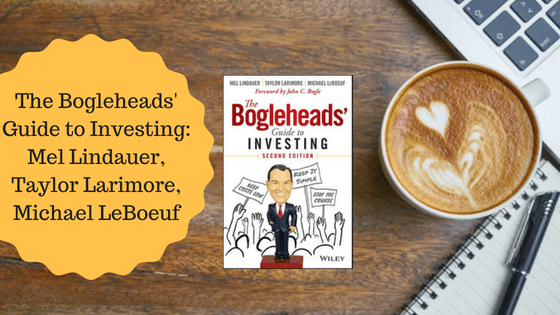
I have always been a voracious reader. My first memories of my reading addiction are the fortnightly trips to a public library with my father and sister. The quota of 2 books used to be consumed by me before the 2-week timeline and I would end up reading the same books repeatedly. My mother actually had to be strict and ration my reading time.
However, for most of my life my interest has been limited to fiction or in some cases biographies. Story-telling remained an essential element in my reading list. During my MBA days I stumbled upon non-fiction when it came to Marketing but finance was still not a favourite at that time.
ELEMENTUM MONEY BOOK CLUB
Off late as my fascination with personal finance has increased so has my inclination to read personal finance non-fiction books. Most of the best sellers are pure gems with a lot of advice that is highly applicable to real-life.
Starting today, every 2-3 weeks I will share with you guys the key lessons that a personal finance book taught me. In case you find it valuable, be sure to pick up the book to get a much deeper perspective.
THE MILLIONAIRE NEXT DOOR
This timeless book, first published over 20 years back, in 1996, holds lessons which everyone would benefit from implementing in their lives. Their book is based on research of 1000 million + (net worth) households and some of the findings are actually something that could surprise a lot of us. The core theme in the book revolves around the fact that most millionaires are conspicuous by their lifestyle and could actually be living right next door.
The book divides households into two core types – UAWs or the Under Accumulators of Wealth and the PAWs or the Prodigious Accumulators of Wealth. As you may have guessed, PAWs are the millionaires even when they might not be high-earners whereas UAWs continuously struggle with their net worth even if they earn well.
Personally, the key lessons I took from the book can be summed up in the below 13 points:
- There is a big difference between a high-consumption lifestyle and being wealthy: We often look at the flashy consumerism around us and believe the owners of those material possessions must be wealthy. However, dig deeper and for all you know it could be a heavily debt-fuelled lifestyle. A high consumption lifestyle ends up guzzling a lot of opportunities to really build wealth.
- Who you marry plays a role in how wealthy you become: Once you get married, try as you may (even with separate bank accounts) the finances of a household get merged. Your spouse’s spending habits can either speed up your wealth-building process or halt it. Just as a tank can never fill up with a leaky tap, a spendthrift spouse can only hamper the path to a high net worth.
- Create an artificial environment of scarcity by investing first: When you see idle money lying in your bank account, human instinct will make you spend it. Most successful people safeguard against this possibility by setting up a mechanism to automatically debit money from the income first to invest it for the future.
- Knowing how much you spend on what is important: This is a tricky one and personally while I might have a brief idea on how much I am spending, can I point to which category am I spending the bulk of my money on? Not yet. If you need more reasons as to why or how you should be tracking your money, read here. Recently, I have taken the first step in this direction by dedicatedly tracking down each rupee spent. Check out how that went here. Do you track your spends?
- Goal-setting is key in getting you where you want to be: This to me was a life lesson. Goal-setting is important not just in personal finance, but life in general. Here, goals refer to controllable factors like how much will you save every month and tracking your progress. Unless you have a destination in mind, no map can help.
- Investing time in financial planning is as important as investing money: Another eye opener for me. Yes, you might have now gotten the discipline to invest some money. But, are you investing enough time to understand financial planning? I know how disheartened I feel when I try to initiate a colleague into the basics of financial planning and their eyes glaze over and they are really not listening. Learning about financial planning can make the difference between using a broker/financial planner at your discretion or being open to be duped by them.
- Minimise realised (taxable) income, maximize unrealized income (wealth/capital appreciation without a cash flow): I have met so many people who do not even take the care to maximize their limit on Section 80C for tax exemptions (More on this next month, just in time to submit investment proofs). Taxation can cut off a big chunk from any earnings. Being smart to legally avoid taxation goes a long way in building wealth. Consider this: If you invest money in a Fixed Deposit for 5 years, you get interest income every year which would be fully taxable. However, if you invest the same amount in a debt fund (much lower risk than equity funds) the taxation is much lower on an inflated amount, taking indexation into consideration.
- Sacrifice high consumption today for financial independence in the future: This is a no-brainer. Traditionally, we Indians have followed this strategy for decades and have seen our parents always saving for a rainy day. Of course, consumption opportunities had not exploded the way they have today. While following this is much tougher today, imagining or visualizing your future is bound to make it easier.
- Financial independence is a high ideal to target: Most of the surveyed millionaires had achieved financial independence – they could live comfortably the rest of their lives on the back of their accumulated wealth. However most of them continued to work as they enjoyed doing so. Taking a leaf from their lives, I know I am aiming at financial independence but not really early retirement.
- Begin earning and investing early in life: This tenet really questions the high-cost of private education that we incur in order to get a fancy degree. While I started working at the age of 22, I did not really start investing (if you don’t count Fixed Deposits) till the age of 27. Yikes! To become a millionaire, your best friends are compounding and time.
- Invest in good-quality stocks for the long-term: Another myth busted. Most millionaires surveyed were not day traders out there to make a quick buck. Instead, they believed more in identifying value in companies, buying their stock and remaining invested for a long time. A strategy, I for one, intend to follow.
- Entrepreneurs are more likely to be millionaires: You might argue about this one, but for every salaried person who is a millionaire, am quite certain there will be 10 entrepreneurs. To be a salaried millionaire, you have to reach the top of the pyramid in your company or your industry. Just imagine the odds of that.
- Discipline and frugality need to be passed on to the next generation: There is a chapter in the book detailing how privileged children never really become PAWs. Essentially, if you are spending more than you earn thanks to the monetary generosity of your parents, you will always depend on them and never really build wealth.
Have you read “The Millionaire Next door”? What are the lessons that you took from the book and applied to your life. Let me know in the comments or email me at aparna@elementummoney.com





Leave a Reply